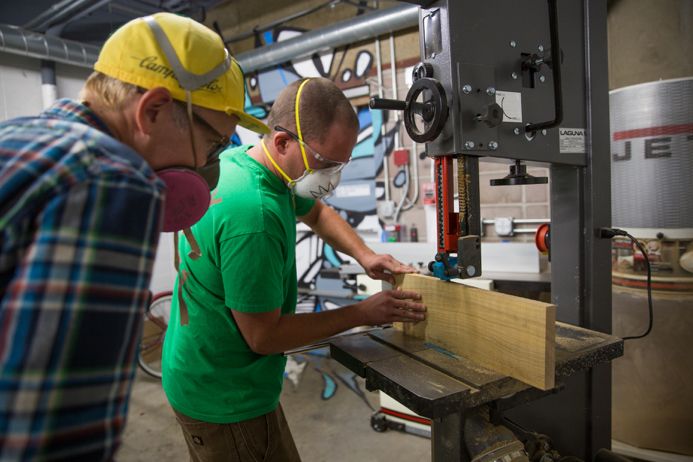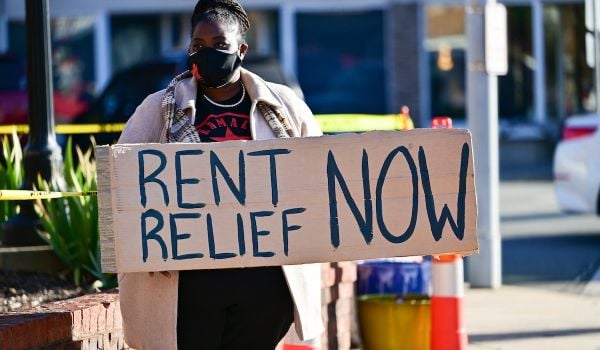Over the past several years, the parks department in Boulder, Colorado, has faced two growing problems. The first is an invasive bug called the emerald ash borer that infects ash trees and lays eggs. After they hatch, the tree dies within four years unless treated with insecticide. Since the bug was discovered in 2013, more than 6,000 trees on public property and 70,000 trees on private land in Boulder have been infected.
At the same time, the city’s homeless population has increased. Around 600 homeless people were living in Boulder at the time of Metro Denver Homelessness Initiative’s latest count. There’s also been an increase in encampments in Boulder parks, which are illegal under city ordinance. (Critics charge that Boulder’s approach is inhumane, citing anti-homeless laws that include making sleeping outside illegal. From 2010 to 2014, the city issued 1,767 tickets for illegal camping, according to the Daily Camera.)
Once the emerald ash borer was discovered in 2013, parks staff knew they would eventually have an overwhelming supply of harvested wood on their hands from the infected and dead trees they’d have to remove.
“It was always on the radar that we’d need to figure out some way to think about wood utilization,” says Margo Josephs, the department’s manager of community partnerships and outreach. “Through brainstorming and talking to colleagues and partners we started thinking about who this could benefit.”
They decided the who should be the city’s homeless population. Working in partnership with Bridge House, a homeless services nonprofit, and BLDG 61, the public library’s makerspace, the parks department applied for and received a $200,000 grant from Knight Foundation. The grant funded 18 months of TreeOpp (short for Tree Debris to Opportunity), a pilot project that teaches woodworking, computer design and sales skills to small cohorts of homeless Boulderites in Bridge House’s job training program. The participants are paid for their time and labor.
TreeOpp’s first session began in September 2016. Working out of BLDG 61, a crew of about eight began by learning about emerald ash borers, tree science and wood milling. Then, after deciding what kind of wood products to make — they opted for cutting boards, chopping blocks, tables and butterfly ornaments — they learned the woodworking skills necessary to complete their projects.
“It’s a challenge taking fine skills that usually take years to master and condensing it into three months. But people are learning more than just woodworking,” says Josephs.

TreeOpp crews in Boulder have learned woodworking. (Credit: Boulder Parks & Recreation)
After three months of classes and woodworking production, the crew set up shop at a Boulder farmers market to sell their products and talk about the ash borer problem. Not only were the products a hit with shoppers, Josephs says the market experience was their proof of concept. The program put Bridge House job training participants to work. It allowed the library to promote its makerspace. It helped the parks department educate the public about the bug infestation, and put housed and homeless Boulder residents in a place to interact in a positive way.
TreeOpp’s second crew recently finished its three-month course. It also had great success at the market. So far, TreeOpp has sold over $5,000 worth of wood products. As the third and final session funded by the Knight grant begins, Josephs is thinking about the future of the program.
Because of the program’s small revenue stream, the city can continue to host classes at the makerspace in partnership with Bridge House. But ultimately, Josephs hopes another organization takes ownership of TreeOpp.
“I think it would be ideal to pass it on to another group or entity and run with it. The city would always continue to be a partner or resource for the material, but TreeOpp could branch and grow in whatever way that’s best for the community,” she says.
One thing that might evolve: the skill sets at the center of the program. “We’re trying to figure out highest opportunity for job training,” Josephs explains. “Woodworking might not actually be the best because there aren’t that many jobs in the field. But we know there’s a shortage of local foresters who can help deal with the emerald ash borer problem in Boulder. We know people can develop sales skills at the market.”
Regardless of how the program evolves, there will be no shortage of wood to supply it. In the next five to seven years, the city plans to remove 4,500 infected trees and treat another 2,500.

Josh Cohen is Crosscut’s city reporter covering Seattle government, politics and the issues that shape life in the city.
Follow Josh .(JavaScript must be enabled to view this email address)
















